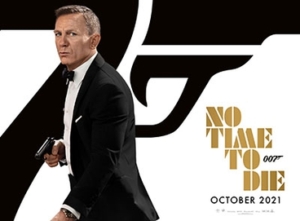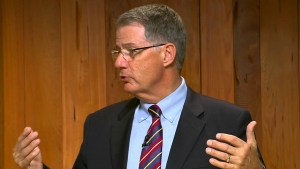The Telegraph has an interesting story concerning revisions made to the Oxford Junior Dictionary. One of the more striking assumptions behind the revision is that children need a special dictionary, and that urban, late modern, religiously pluralist or secular children need a . . . Continue reading →
liquid modernity
What Happens When Reader is King
Carl explains this and other absurdities at Ref21.
On Being Truly Postmodern
An HB Classic
There is a good deal of talk in contemporary evangelicalism about the rise, nature, and effect of so-called “postmodernism,” a movement in architecture, literature, philosophy, and religion associated with a circle of French writers such as Michel Foucault and Jacques Derrida. In . . . Continue reading →
Heidelcast 19: The Church of Steel vs A Cross of Wood
The Church of Steel vs A Cross of Wood In downtown San Diego there is a storefront on Broadway which advertises itself as the “Church of Steel.” I found an interview with the proprietor (minister?) of this “church” and it is enlightening. . . . Continue reading →
Modernity: The Story Without Its Author
If there is little mystery about where the West got its faith in a narratable world, neither is there much mystery about how the West has lost this faith. The entire project of the Enlightenment was to maintain realist faith while declaring . . . Continue reading →
The Oxford Dictionaries’ Word Of 2016: “Post-Truth”
The BBC reports that the word of the year for 2016 the compound “post-truth.” Oddly, however, there is no entry in the Oxford English Dictionary (OED) for “post-truth.” It does not occur in my computer’s Oxford American Dictionary. Nevertheless, apparently, in some . . . Continue reading →
Understanding Our Liquid, Therapeutic Age
Perhaps one of the most confusing aspects of this present age is the sheer speed with which unquestioned orthodoxies—for example, the nature of marriage, or the tight connection between biology and gender, or the vital importance of free speech to a free . . . Continue reading →
How Did We Get To Drag Queen Story Hour?
Jean-Jacques Rousseau (1712–1778) is a key source, with his provocative notion that human learning—the “arts and sciences” of his First Discourse—is actually that which corrupts us and hinders us being truly ourselves. Uncultured instincts and feelings are really who we are; civilization . . . Continue reading →
Grammar Guerrilla: Punctuation Is Not Mean Spirited. Full Stop.
According to a number of media stories (the original story appeared in the UK Telegraph) Generation Z, those born 1995–2015, find certain punctuation marks threatening. The argument is that the use of the period (“full stop” in the UK) in text messages (and . . . Continue reading →
Demons In The Digital Age
One of the myths that has been exploded in late modernity is that we Westerners are an “Enlightened” people, who have moved beyond demons, ghosts, and religion. We are not and we have not. I am not saying that we have not . . . Continue reading →
Brooks Describes The Problem But Does He Answer The Central Question: Why?
During most of the 20th century, through depression and wars, Americans expressed high faith in their institutions. In 1964, for example, 77 percent of Americans said they trusted the federal government to do the right thing most or all of the time. Then came the last two moral convulsions. In the late 1960s and ’70s, amid Vietnam and Watergate, trust in institutions collapsed. By 1994, only one in five Americans said they trusted government to do the right thing. Then came the Iraq War and the financial crisis and the election of Donald Trump. Institutional trust levels remained pathetically low. Continue reading →
Post-Christian Americans Are Not Less Religious, Just More Pagan
This trend can be observed on the basis of age cohort: Young adults, being less religious, are more inclined to believe in ghosts, astrology, clairvoyance and spiritual energy. But it also can be observed geographically: The parts of the United States where . . . Continue reading →
Office Hours: Carl Trueman Explains Why The World Seems So Upside Down
Or Why It Seems Rude To Call Caitlyn, Bruce And Elliot, Ellen
If you are of sufficient age, you remember when Caitlyn Jenner was Bruce Jenner, one of the greatest Olympic Athletes in modern history. He won the gold medal in the Decathlon in the 1976 Olympics. If you are a little younger you . . . Continue reading →
The Proper Response To Postmodernism
There is a good deal of talk in contemporary evangelicalism about the rise, nature, and effect of so-called “postmodernism,” a movement in architecture, literature, philosophy, and religion associated with a circle of French writers such as Michel Foucault and Jacques Derrida. In . . . Continue reading →
Trueman: Nietzsche Was Prescient
While many on the right default to accusations of cultural Marxism when confronted with such iconoclasm, I would argue that this latest trend is reminiscent of nothing so much as Friedrich Nietzsche’s haunting statement in Twilight of the Idols: “I fear we . . . Continue reading →
Bond And A Betrayal Culture
There are two problematic layers built into No Time to Die’s manipulative betrayal of Bond fans. The first, and arguably less substantive, is the film’s abandonment of the 007 formula. Movie critics have praised the decision to depart from the standard format of find the villain, defeat the villain, get the girl, get away with a dryly humorous quip. This praise, however, is precisely what reveals the elitist nature of the modern entertainment industry. There is a necessary question: If twenty-five movies (plus the novels and a few video games) have had immense commercial success for sixty years while abiding by the same formula, what suggests that the audience wants the films to depart from the formula? Quite obviously, it seems that we continue to pay money to watch Bond movies because we want the formula. If we wanted something else, we would see a different movie. Continue reading →
What’s Going on Right Now: Sex, Race, Politics, & Power with Dr. W Robert Godfrey (6)
In the sixth session of Bob Godfrey’s Sunday school class at the Escondido URC, he traces the effects of the Enlightenment upon the West. Drawing upon Carl Becker’s work he highlights four key tenets of the movement: (1) that man is not natively . . . Continue reading →
What’s Going on Right Now: Sex, Race, Politics, & Power with W Robert Godfrey (7)
This is the seventh session of Bob Godfrey’s Adult Sunday School series at the Escondido URC. In this session he explores the challenges faced by Christendom due to the Enlightenment and how it took shape in America. He argues that Christianity as . . . Continue reading →
Heidelcast 215: Behind The Scenes Of The Collapse Of The West
We are interrupting our series on prayer, Our Father, to air to a talk I gave yesterday to the Escondido URC Adult Sunday School class. We also got an interesting question on the Heideltext line about the nature of the presence of . . . Continue reading →
On Being Truly Postmodern
There is a good deal of talk in contemporary evangelicalism about the rise, nature, and effect of so-called postmodernism, a movement in architecture, literature, philosophy, and religion associated with a circle of French writers such as Michel Foucault and Jacques Derrida. In . . . Continue reading →









